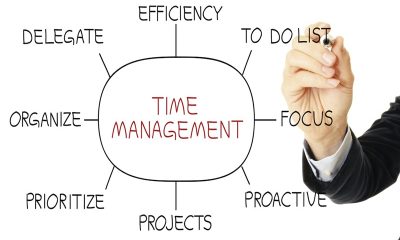Job Search Strategies
Customizing Your Job Search for Different Industries

Job Search Strategies
Strategies for Career Advancement: Insights from Sporting Goods & Outdoor Equipment Industry Headhunters

Embarking on a journey toward career advancement requires strategic planning and insightful guidance. In the dynamic realm of the Sporting Goods & Outdoor Equipment Industry, leveraging expertise from headhunters can significantly enhance your trajectory. Let’s explore invaluable strategies for propelling your career forward.
Understanding the Industry Landscape:
Before delving into career advancement strategies, it’s essential to comprehend the unique dynamics of the Sporting Goods & Outdoor Equipment Industry. Headhunters specializing in this field possess intricate knowledge of market trends, key players, and evolving consumer preferences. Tap into their expertise to gain a comprehensive understanding of industry nuances.
In recent years, the Sporting Goods & Outdoor Equipment Industry has witnessed remarkable growth, driven by increasing consumer interest in outdoor recreational activities, health and wellness trends, and technological innovations. With a diverse array of subsectors ranging from athletic apparel and footwear to camping gear and fitness equipment, this industry offers abundant opportunities for career growth and advancement.
Crafting a Compelling Professional Brand:
In a competitive job market, a compelling professional brand sets you apart. Collaborate with Sporting Goods & Outdoor Equipment Industry Headhunters to refine your resume, LinkedIn profile, and personal branding materials. Highlight relevant skills, experiences, and accomplishments tailored to industry expectations to attract coveted opportunities.
Your professional brand should reflect your unique value proposition, showcasing how your skills and expertise align with the needs and priorities of employers in the Sporting Goods & Outdoor Equipment Industry. Emphasize your passion for outdoor activities, commitment to sustainability, and proficiency in relevant technologies to capture the attention of industry recruiters and hiring managers.
Networking with Purpose:
Networking serves as a cornerstone for career advancement. Engage in purposeful networking initiatives guided by insights from headhunters specializing in the Sporting Goods & Outdoor Equipment Industry. Attend industry events, join relevant professional associations, and cultivate meaningful connections to expand your sphere of influence.
Effective networking involves more than just collecting business cards or connecting on social media. It requires building genuine relationships based on mutual respect and shared interests. Take the time to engage in meaningful conversations, offer assistance to others, and follow up with personalized messages to nurture professional connections.
Navigating Executive Search Processes:
Executive search processes within the Sporting Goods & Outdoor Equipment Industry demand a strategic approach. Leverage the expertise of industry-specific headhunters to navigate these intricate processes effectively. From initial screening to final negotiations, adept guidance ensures optimal outcomes and positions you as a top candidate.
When engaging with executive recruiters or headhunters, demonstrate your readiness for leadership roles within the Sporting Goods & Outdoor Equipment Industry. Showcase your track record of success, innovative thinking, and ability to drive results in fast-paced environments. By articulating your value proposition with clarity and confidence, you enhance your prospects of securing executive-level positions.
Embracing Continuous Learning:
In a rapidly evolving industry landscape, embracing continuous learning is non-negotiable. Collaborate with Sporting Goods & Outdoor Equipment Industry Headhunters to identify relevant training programs, certifications, and skill development opportunities. Stay abreast of emerging trends and technologies to remain competitive and adaptable.
Professional development should be viewed as an ongoing process rather than a one-time event. Invest in acquiring new skills, expanding your industry knowledge, and honing your leadership abilities to stay ahead of the curve. By demonstrating a commitment to lifelong learning, you position yourself as a forward-thinking professional capable of driving innovation and growth within the Sporting Goods & Outdoor Equipment Industry.
Cultivating a Growth Mindset:
A growth mindset fosters resilience and adaptability in the face of challenges. Partner with headhunters specializing in the Sporting Goods & Outdoor Equipment Industry to cultivate this mindset. Embrace feedback, learn from setbacks, and approach career advancement as a journey of continuous improvement.
Adopting a growth mindset involves reframing obstacles as opportunities for learning and growth. Instead of viewing setbacks as failures, see them as valuable lessons that propel you toward future success. By maintaining a positive outlook and embracing change, you position yourself as a proactive and agile professional capable of thriving in dynamic environments.
Seizing Leadership Opportunities:
Leadership opportunities abound within the Sporting Goods & Outdoor Equipment Industry for those poised to seize them. Work closely with industry headhunters to identify and pursue leadership roles aligned with your strengths and aspirations. Develop a compelling narrative that showcases your leadership potential and vision for driving impactful change.
Whether you aspire to lead cross-functional teams, spearhead product innovation initiatives, or drive strategic partnerships, articulate your leadership philosophy with clarity and conviction. Demonstrate your ability to inspire and empower others, navigate complex challenges, and deliver tangible results that drive organizational success. By positioning yourself as a visionary leader committed to driving positive change within the Sporting Goods & Outdoor Equipment Industry, you enhance your prospects of securing leadership positions and advancing your career trajectory.
Building Strategic Partnerships:
Collaborative partnerships are instrumental in career advancement within the Sporting Goods & Outdoor Equipment Industry. Forge strategic alliances with industry peers, mentors, and stakeholders under the guidance of headhunters specializing in this domain. Cultivate mutually beneficial relationships that open doors to new opportunities and enhance your professional growth.
Strategic partnerships can take many forms, from mentorship programs and industry alliances to cross-functional collaborations and thought leadership initiatives. Identify key stakeholders within the Sporting Goods & Outdoor Equipment Industry who can offer valuable insights, support, and opportunities for advancement. By cultivating a network of strategic partners who share your goals and values, you expand your influence and create new pathways for career advancement within the industry.
Conclusion: Insights from Sporting Goods & Outdoor Equipment Industry Headhunters
Navigating the path to career advancement within the Sporting Goods & Outdoor Equipment Industry requires strategic foresight and expert guidance. By partnering with seasoned headhunters specializing in this dynamic field, you gain access to invaluable insights and resources. Embrace these strategies, cultivate a growth mindset, and seize leadership opportunities to propel your career to new heights.
Job Search Strategies
Unlocking Opportunities: Strategies for Catching the Eye of Psychiatry Industry Headhunters
In the competitive field of psychiatry, securing the right opportunities often requires strategic navigation of the job market. One key avenue for accessing coveted positions is through Psychiatry Industry Headhunters. These professionals specialize in matching talented individuals with top-tier opportunities within the psychiatry sector. In this comprehensive guide, we’ll delve deeper into the strategies for catching the eye of Psychiatry Industry Headhunters and maximizing your chances of success.
Understanding Psychiatry Industry Headhunters:
Psychiatry Industry Headhunters play a crucial role in talent acquisition within the psychiatry field. They possess in-depth knowledge of the industry landscape and maintain extensive networks with leading organizations. Leveraging their expertise can significantly enhance your job search efforts. These headhunters are adept at identifying candidates who not only possess the requisite skills and qualifications but also align with the culture and values of prospective employers.
Crafting a Standout Resume:
Your resume serves as your first impression on Psychiatry Industry Headhunters. It should effectively communicate your skills, experiences, and accomplishments in the field of psychiatry. Tailor your resume to highlight relevant expertise such as clinical experience, research projects, publications, and specialized training. Use concise language and quantifiable results to demonstrate your value proposition to potential employers.
Building an Online Presence:
In today’s digital age, establishing a strong online presence is essential for catching the eye of Psychiatry Industry Headhunters. Maintain an updated LinkedIn profile showcasing your expertise in psychiatry. Optimize your profile with relevant keywords and endorsements to improve your visibility to headhunters searching for top talent. Engage in industry-relevant discussions, share insightful content, and participate in professional groups to position yourself as a thought leader in the field.
Networking Effectively:
Networking remains a powerful tool for connecting with Psychiatry Industry Headhunters and accessing hidden job opportunities. Attend industry conferences, seminars, and networking events to expand your professional circle. Cultivate meaningful relationships with peers, mentors, and industry professionals who may provide valuable referrals or introductions to headhunters. Leverage platforms like LinkedIn to reach out to headhunters directly and initiate conversations about potential career opportunities.
Showcasing Specialized Expertise:
Psychiatry is a diverse field with various subspecialties and niche areas of expertise. To stand out to Psychiatry Industry Headhunters, showcase your specialized skills and knowledge in specific areas of psychiatry. Highlight any certifications, fellowships, or advanced training programs you’ve completed. Additionally, emphasize any research projects, publications, or presentations relevant to your specialty. By demonstrating your specialized expertise, you’ll pique the interest of headhunters seeking candidates with unique qualifications.
Staying Flexible and Open-Minded:
While it’s essential to have clear career goals and aspirations, it’s equally important to remain flexible and open-minded when working with Psychiatry Industry Headhunters. Be receptive to opportunities that may not align precisely with your initial expectations. Consider temporary or locum tenens positions as stepping stones to permanent roles. Embrace new challenges and experiences that contribute to your professional growth and expand your skill set in the field of psychiatry.
Nurturing Relationships with Headhunters:
Building and maintaining strong relationships with Psychiatry Industry Headhunters is key to unlocking career opportunities in psychiatry. Keep them updated on your career milestones, interests, and preferences. Be proactive in seeking feedback and advice on your job search strategy. By nurturing these relationships, you position yourself as a valuable asset they’ll remember when relevant opportunities arise.
Conclusion:
In conclusion, Psychiatry Industry Headhunters can be valuable allies in your quest for career advancement in psychiatry. By implementing the strategies outlined in this guide, you can effectively catch their eye and unlock a wealth of opportunities in the field. Remember to leverage your resume, online presence, networking skills, specialized expertise, flexibility, and relationship-building abilities to stand out from the competition and secure your dream job in psychiatry.
Job Search Strategies
Inside Look: How Biotech Recruitment Agencies Impact Hiring Strategies

In the dynamic landscape of the biotech industry, finding and retaining top talent is a strategic imperative. This article delves into the intricate world of Biotech Recruitment Agencies, exploring their pivotal role in shaping and optimizing hiring strategies for companies operating in this cutting-edge sector.
The Evolution of Biotech Recruitment Agencies:
Biotech Recruitment Agencies have evolved into indispensable partners for companies seeking specialized talent. Originally focused on traditional recruitment, these agencies now offer a comprehensive suite of services, including talent mapping, market analysis, and strategic workforce planning. This evolution reflects the growing complexity and competitiveness of the biotech industry, where the demand for skilled professionals continues to outpace supply.
Strategic Partnerships and Collaborations:
Biotech Recruitment Agencies form strategic partnerships with companies to understand their unique needs. By embedding themselves within the organizational culture and aligning closely with business objectives, these agencies can develop tailored hiring strategies that drive success. Collaborations often involve ongoing dialogue and feedback loops, ensuring that recruitment efforts remain agile and responsive to evolving market dynamics.
Tailored Talent Acquisition Strategies:
One key impact of Biotech Recruitment Agencies is their ability to tailor talent acquisition strategies to meet the specific needs of their clients. Leveraging their deep industry expertise and extensive networks, these agencies can identify candidates with the precise skill sets and experience required for success in the biotech sector. Whether it’s sourcing niche specialists or scaling recruitment efforts for large-scale projects, Biotech Recruitment Agencies excel in delivering targeted solutions that meet the demands of their clients.
Navigating the Competitive Landscape:
In a highly competitive industry, gaining a competitive edge is crucial. Biotech Recruitment Agencies possess a keen understanding of the competitive landscape, enabling them to identify and attract top talent in a crowded market. By employing innovative sourcing techniques, leveraging advanced technology, and cultivating relationships with passive candidates, these agencies ensure that their clients have access to the best talent available.
Efficiency and Time-to-Hire Optimization:
Time is of the essence in the fast-paced biotech sector. Biotech Recruitment Agencies understand the urgency of talent acquisition and are adept at streamlining the hiring process to minimize time-to-hire. Through efficient candidate screening, rigorous evaluation processes, and proactive communication, these agencies ensure that companies can swiftly secure the talent needed to drive their projects forward without compromising on quality.
Industry Insights and Market Intelligence:
Biotech Recruitment Agencies are immersed in the industry, constantly monitoring trends and developments to stay ahead of the curve. This deep understanding of the biotech landscape enables them to provide valuable insights and market intelligence to their clients, helping them make informed decisions about their hiring strategies. Whether it’s identifying emerging skill gaps, predicting future hiring trends, or benchmarking against competitors, Biotech Recruitment Agencies play a critical role in guiding their clients towards success.
Enhancing Diversity and Inclusion Initiatives:
Diversity and inclusion are not just buzzwords in the biotech industry; they are essential drivers of innovation and success. Biotech Recruitment Agencies recognize the importance of building diverse and inclusive teams and actively contribute to this effort. By implementing inclusive hiring practices, reaching out to underrepresented talent pools, and advocating for diversity initiatives, these agencies help their clients create environments where all employees can thrive and contribute their best work.
Measuring Success: Key Performance Indicators (KPIs):
Success in biotech recruitment is measurable. Biotech Recruitment Agencies utilize a range of key performance indicators (KPIs) to evaluate the effectiveness of their strategies and ensure alignment with client objectives. Metrics such as time-to-fill, candidate quality, retention rates, and diversity metrics provide valuable insights into the impact of recruitment efforts and enable continuous improvement over time.
Conclusion:
In conclusion, the impact of Biotech Recruitment Agencies on hiring strategies cannot be overstated. As companies strive to stay competitive and innovative in the biotech industry, these agencies emerge as instrumental partners, driving success through strategic collaborations, tailored approaches, and a commitment to excellence in talent acquisition. By leveraging their expertise, networks, and industry insights, Biotech Recruitment Agencies empower their clients to overcome hiring challenges, navigate market complexities, and build high-performing teams that fuel growth and innovation in the dynamic world of biotechnology.
-

 Industry Insights7 months ago
Industry Insights7 months agoTech Trends Shaping the Future: A Comprehensive Overview
-

 Career Exploration7 months ago
Career Exploration7 months agoSpace Tourism: Opportunities Beyond the Stratosphere
-

 Professional Development7 months ago
Professional Development7 months agoThe Art of Effective Time Management for Career Growth
-

 Job Search Strategies7 months ago
Job Search Strategies7 months agoEffective Time Management During Job Hunting
-

 Job Search Strategies7 months ago
Job Search Strategies7 months agoUsing Job Search Engines to Your Advantage
-

 Job Search Strategies7 months ago
Job Search Strategies7 months agoRefining Your Elevator Pitch for Networking Success
-

 Job Search Strategies7 months ago
Job Search Strategies7 months agoExcel in the Art of Navigating Job Fairs and Networking Events
-

 Industry Insights7 months ago
Industry Insights7 months agoValue-Based Care: Reshaping Healthcare Industry Models





















